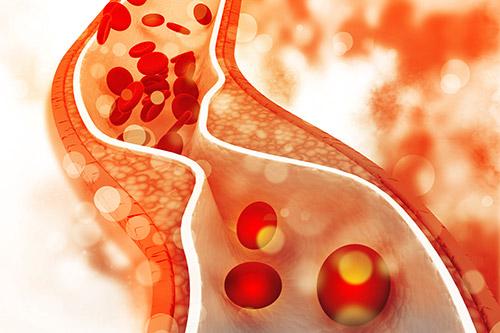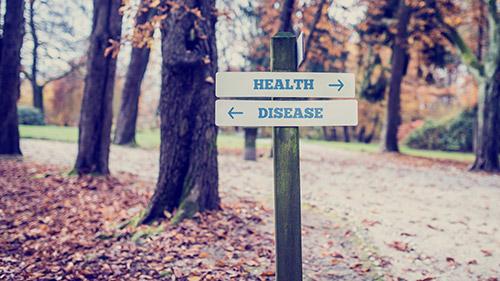General Health Blood Test
Our general health blood test is a comprehensive health MOT blood test you can take at home and send to our lab for analysis. We'll check your heart, liver, thyroid and kidney health as well as key vitamin and mineral levels.
Comes with our
- Results and doctor's report in 2 days or less
- Free, next-working day delivery
- NHS-testing lab
Personalise your test
General Health Blood Test base price:
£139.00Finger-prick blood collection
Total price:
£139.00
Don't just take our word for it
At Selph, we've helped thousands of people feel better today and live longer tomorrow.
Malcolm
“The test results came back within two days with a very detailed report and lots of advice going forward. I choose to do the blood draw at Superdrug as you do need quite a bit of blood (two test tubes) and I wasn’t confident doing this at home by myself. Also the nurse packaged everything up for me and there was a priority postbox nearby. A big bit of advice for a successful blood draw is to drink plenty of water beforehand ideally starting the day before so you are not dehydrated. I chose to do the comprehensive general health check which tested for lots of different things. The whole process from delivery of test kit to results was excellent, getting results very quickly was one of the main reasons I chose Selph.”
Five Star ReviewShaunie
“I have used Selph a couple of times now, each time the delivery of sample has been guaranteed 24 hours. A very easy service to use to get results quickly and within comfort of your own home. Will use again if and when needed.”
Five Star ReviewMaryvonne
“The kit was simple and easy to use. The online video was a useful addition to the printed instructions. I was amazed at the speed of the results”
Five Star ReviewWhat you need to know about our General Health Blood Test
If you're looking for a general health MOT then our General Health Blood Test is exactly what you need.
Our General Health Blood Test is a comprehensive blood test panel for both men and women, designed to check your key general health biomarkers and pick up health problems early. We should all be taking the General Health Blood Test once a year.
What conditions does the General Health Blood Test check for?
A General Health Blood Test should give you a health MOT, checking your major body systems for problems even though you feel fine now. We check your cholesterol, diabetes risk, thyroid, liver and kidney health and key vitamins and minerals. These markers give you information about your risk of heart disease, stroke, diabetes, cancer and dementia.
Is the General Health Blood Test suitable for men and women?
Yes - our General Health Blood Test is designed to be a thorough health MOT for both men and women. For the most part the major risks to men's and women's health are the same. Heart disease, cancer, diabetes and dementia affect us all regardless of sex.
However, there are a few more spoecialist blood tests that are more useful in men than in women. That's why you can "add on" a testosterone blood test and a protstate specific antigen blood test to the General Health Blood Test.
How often should I take a General Health Blood Test
Most of us should be taking the General Health Blood Test once a year. If you're under 30 you might consider taking it every few years instead but in an ideal world you would still be checking these core biomarkers every year.
If the General Health Blood Test picks up areas that could do with improvement, e.g. high cholesterol levels, then you may need to do further tests related to that specific issue but you wouldn't generally need to take the full general health MOT more than once in a year.
What's tested in the General Health Blood Test?
Cholesterol Status
Your lipid profile - the levels of triglycerides and cholesterol in your blood - is one of most important risk factors for heart disease. High cholesterol also increases your risk of stroke and dementia.
What's measured:
Diabetes & Sugar Handling
Diabetes and pre-diabetes - the stage before full-blown diabetes - are directly linked to your risk of heart disease. Poor sugar handling is also related to other conditions such as cancer and dementia.
What's measured:
Thyroid Health
Your thyroid gland controls how fast your metabolism runs. Thyroid problems are common and will affect all aspects of your health from your gut to your skin and mental health.
What's measured:
Liver Health
Your liver is the main organ affecting how you metabolise pretty much everything you put inside your body, including food, drink and medications. Alcohol and excess body fat are common causes of liver injury.
What's measured:
Kidney Health
Along with your liver, your kidneys are crucial to filter and detox your blood. But common conditions like high blood pressure and diabetes can cause damage over time.
What's measured:
Iron Deficiency
Iron is essential for your red blood cells and immune system. Iron deficiency is the commonest mineral deficiency in the UK, particularly if you're on a plant-based diet or are a woman before the menopause. Iron deficiency can also be a sign of cancer.
What's measured:
Essential Vitamins
Vitamin B12 and vitamin D are fundamental to health and deficiency is common.
What's measured:
Find out more about our General Health Blood Test
The General Health Blood Test includes a cholesterol profile. It's best to take this test when fasting. Practically, this usually means taking the test in the morning, before breakfast.
We also check your kidney function using a serum creatinine blood test. It's best to avoid meat in your diet in the 12 hours before you take this test.
The General Health Blood Test can tell you if you have markers in the blood which could indicate a problem with your health.
Positive results may highlight some dietary or lifestyle changes you could make or identify where further testing would be helpful.
Negative results can give you reassurance that your health is probably on the right track. However, it is important to understand that no test can look for everything, particularly in the very early stages of a condition. Always listen to your body and speak to a doctor if you have any concerns.
We do not recommend using this test panel if you:
- are a child (17 years or under)
- are pregnant or breastfeeding (this can affect many of your blood test markers)
- are feeling acutely unwell - e.g. with a cold or flu or if you have new-onset (i.e. within the last few days) symptoms.
If you're unsure if you should use this test panel, please contact us for advice.
Still have questions?
If you have any questions, we're here to help. Our customer service team is hands-down the best you'll ever deal with. They're smart, friendly, knowledgeable and will get back to you in a flash.
We've got the stats to back it all up.
When it comes to health, you want to know you’re in safe hands. We’ve got decades of experience, and we’ve got the stats to prove it.
20+
Years in healthcare
65,000+
5 star reviews

1 million+
Happy customers
2 million+

Our Privacy Promise
Your health is yours. It's personal. That's why we're committed to keeping your data safe and secure. Here's how we do it:
- We use anonymous packaging.
- Only the analyses you request are performed on your samples.
- Your GP won't see your results unless you want them to.
- Your data are safe from insurance companies.
See our Privacy Policy and our Terms of Service for more info.



-blood-test-box-mock.png&w=3840&q=75)







